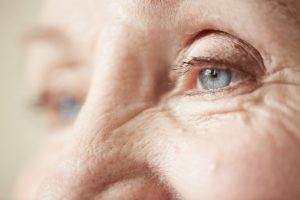
Ophthalmoplegia (eye muscle weakness): Causes, signs, and treatment
Ophthalmoplegia—eye muscle weakness—is a condition that is characterized by either paralysis or weakness of the eye muscles. It can lead to a lack of eye mobility and even permanent eye drooping, since it can affect one or more of the six muscles that hold the eye in place.
There are two different types of ophthalmoplegia: chronic progressive external ophthalmoplegia and internal ophthalmoplegia (INO). Chronic progressive ophthalmoplegia tends to appear in adults between the ages of 18 and 40. Usually, it starts with drooping eyelids and difficulty controlling muscles that are normally used to coordinate the eyes. Internal ophthalmoplegia impacts lateral eye movement and often leads to double vision. Continue reading…
Our eyes put up with a lot. Hours in front of the TV or computer, ambient low lighting in a restaurant, squinting into the sun while driving (even with sunglasses)—the list goes on and on. And despite how important our eyesight is, we tend to take it for granted.
There are certain habits, in particular, that we continue to put our eyes through that are actually quite damaging. If any of the following sounds familiar, now’s the time to stop. You’ve only got the one pair, after all…Continue reading…
Eye discharge (eye mucus) is a combination of oil, mucus, skin cells, and other debris accumulating at the corners of your eyes during sleep. It can sometimes be wet and sticky, and at other times it may be dry and crusty.
Although eye discharge may gross you out and be annoying to clean every morning, it actually has a protective function, removing waste products and potentially harmful debris from the tear ducts.
Eye discharge is formed while you’re asleep because, during the day, frequent blinking bathes the eyes, preventing the mucus from accumulating. When we sleep, we do not blink, so the mucus piles up.
A small amount of eye discharge upon awakening is normal, but excessive mucus or a weird color—yellow or green—could indicate a serious eye problem. Continue reading…
Eye floaters are spots moving through your field of vision. They may appear black or gray, stringy or cobweb-like, and may move, drift, or dart when you move your eyes. Many eye floaters are brought on by age-related changes in the eyes—for example, when the jellylike substance of the eye becomes liquefied. If eye floaters appear and increase quickly or suddenly, you should see an eye specialist right away.
There are many different reasons for eye floaters. Some are harmless and others require immediate medical attention. The following natural remedies may help you get rid of eye floaters. Continue reading…
Many changes occur as we age. Our skin isn’t as tight anymore, our hearing may fade, and our vision may deteriorate. But growing older doesn’t mean you have to give up on your good health. When it comes to your eyes, for starters, there are several natural ways to improve them—no matter how old you are.
Preserving your vision is important to you, there’s no doubt in that, so before you turn to costly drugs or surgery, you’ll definitely want to try these home remedies for good eyesight. Continue reading…